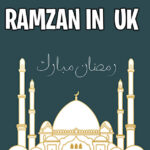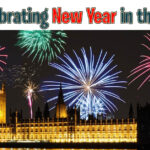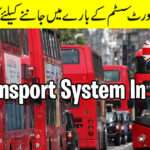Eid, the Islamic festival marking the end of Ramadan, is celebrated with great fervor and joy around the world. In the United Kingdom, where multiculturalism thrives, Eid takes on a unique flavor as people from diverse cultural backgrounds come together to observe this auspicious occasion. This article aims to delve into the rich tapestry of Eid celebrations in the UK, exploring How Foreigners Celebrate Eid in the UK and partake in these festivities, creating a beautiful blend of traditions and cultures.
-
The Muslim Population in the UK:
- According to the Office for National Statistics, Muslims make up a significant portion of the UK’s population, with estimates suggesting around 5% of the total population identifies as Muslim.
- The Muslim community in the UK is incredibly diverse, comprising individuals from various ethnicities, including Pakistani, Bangladeshi, Arab, Somali, and more.
The Muslim population in the United Kingdom is a significant demographic group that contributes to the country’s rich cultural tapestry. Here’s a more detailed explanation:
i. Population Size: According to the Office for National Statistics (ONS), Muslims constitute a notable proportion of the UK’s population. As of recent estimates, roughly 5% of the total population identifies as Muslim. This translates to several million individuals, making Muslims one of the largest religious minorities in the country.
ii. Diversity within the Muslim Community: The Muslim community in the UK is incredibly diverse, reflecting a wide range of ethnicities, cultures, and linguistic backgrounds. While a significant portion hails from South Asian countries such as Pakistan and Bangladesh, there are also sizable Arab, African, and Southeast Asian Muslim populations. This diversity adds richness to the cultural fabric of British society.
iii. Migration and Settlement: The presence of Muslims in the UK has historical roots, with significant waves of migration occurring in the 20th and 21st centuries. Many Muslims originally migrated to the UK from former British colonies in Asia and Africa, seeking economic opportunities, education, and refuge. Additionally, ongoing migration from Muslim-majority countries contributes to the growth and diversity of the Muslim population.
iv. Urban Concentration: Muslim communities in the UK are concentrated in various urban centers, particularly in cities with historically high levels of immigration and multiculturalism. London, Birmingham, Manchester, Bradford, and Leicester are among the cities with sizable Muslim populations. These communities often establish mosques, cultural centers, and businesses, creating vibrant hubs of religious and social activity.
v. Socioeconomic Diversity: Within the Muslim community, there exists a spectrum of socioeconomic backgrounds. While some individuals and families have achieved high levels of education, professional success, and economic stability, others may face socio-economic challenges, including unemployment, poverty, and discrimination. Addressing these disparities remains an important aspect of social policy and community development efforts.
2. Eid Traditions Across Cultures:
“Eid Traditions Across Cultures” refers to the diverse ways in which the Islamic festival of Eid is celebrated by Muslims around the world, each influenced by local customs, cultural practices, and regional variations. Here’s a comprehensive explanation:
i. Eid al-Fitr:
-
- Eid al-Fitr, often referred to as the “Festival of Breaking the Fast,” marks the end of Ramadan, the Islamic holy month of fasting. It begins with the sighting of the new moon, signaling the conclusion of fasting.
- Muslims gather early in the morning for communal prayers known as “Salat al-Eid” in mosques, open fields, or designated prayer areas. These prayers typically involve recitations from the Quran and special supplications.
- Following the prayers, Muslims exchange greetings and well-wishes, saying “Eid Mubarak” (Blessed Eid) to each other. It’s common for people to hug and offer gifts to friends, family members, and neighbors.
- One of the central aspects of Eid al-Fitr is the sharing of food and sweets. Families prepare elaborate feasts featuring traditional dishes, sweets, and delicacies. It’s also customary to give charity (Zakat al-Fitr) to those in need before the Eid prayers
ii. Eid al-Adha:
-
-
- Eid al-Adha, also known as the “Festival of Sacrifice,” commemorates the willingness of Prophet Ibrahim (Abraham) to sacrifice his son Isma’il (Ishmael) as an act of obedience to God. However, before the sacrifice, God provided a ram to be sacrificed instead.
- The festival coincides with the annual Hajj pilgrimage to Mecca and lasts for several days. Muslims around the world who are not performing Hajj participate in the celebrations.
- The day begins with communal prayers, similar to Eid al-Fitr, followed by the sacrifice of an animal such as a sheep, goat, cow, or camel. The meat from the sacrifice is divided into three parts: one-third is kept for the family, one-third is shared with relatives and friends, and one-third is donated to the less fortunate.
- Eid al-Adha also emphasizes the importance of charity and sharing. Muslims are encouraged to help those in need and distribute meat to the poor and needy in their communities.
-
iii. Regional and Cultural Variations:
-
- While the core rituals of Eid al-Fitr and Eid al-Adha remain consistent across Muslim communities, there are regional and cultural variations in how these festivals are celebrated.
- In Arab countries, for example, Eid celebrations often involve elaborate feasts with dishes such as lamb, rice, and various sweets like baklava and ma’amoul. Families may also dress in traditional attire and visit relatives and friends to exchange greetings and gifts.
- In South Asian countries like Pakistan, India, and Bangladesh, Eid is celebrated with special dishes like biryani, kebabs, and sweets such as sheer khurma and jalebi.
- African Muslim communities may incorporate local customs and traditions into their Eid celebrations, such as drumming, dancing, and traditional attire. In some regions, there are communal gatherings and outdoor festivities featuring music, food stalls, and games.
iv. Modern Influences:
-
- In addition to traditional customs, modern influences such as technology and social media have also shaped the way Eid is celebrated. Many Muslims use platforms like WhatsApp, Facebook, and Instagram to send Eid greetings, share photos of their celebrations, and connect with loved ones, especially those who may be far away.
- In multicultural societies like the United Kingdom, Muslims may blend their cultural traditions with local customs, creating unique and diverse Eid celebrations that reflect the rich tapestry of their communities.
3. Pakistani Influence:
The Pakistani influence on Eid celebrations in the United Kingdom is profound, given the significant presence of Pakistani Muslims in the country. Here’s an in-depth explanation:
i. Demographic Presence:
-
- Pakistani Muslims constitute one of the largest ethnic and religious groups within the British Muslim community. Migration from Pakistan to the UK began in the mid-20th century and has continued since then, resulting in a sizable Pakistani diaspora in cities across the UK, notably in places like Bradford, Birmingham, Manchester, and London.
ii. Cultural Traditions:
-
-
- Pakistani Eid celebrations in the UK are marked by a rich tapestry of cultural traditions, many of which have been passed down through generations.
- Traditional Pakistani attire, such as shalwar kameez for men and colorful salwar suits for women, is often worn during Eid prayers and festive gatherings. This attire not only adds to the celebratory atmosphere but also serves as a symbol of cultural identity and pride.
-
iv. Culinary Delights:
-
- Food plays a central role in Pakistani Eid celebrations, with families preparing a lavish spread of traditional dishes to share with loved ones and guests. Some popular Eid delicacies include:
- Biryani: A fragrant rice dish cooked with meat (usually chicken, beef, or mutton), aromatic spices, and herbs. Biryani is a staple of festive meals and is enjoyed by people of all ages.
- Kebabs: Succulent and flavorful grilled or skewered meat, often served as appetizers or side dishes during Eid feasts.
- Sheer Khurma: A creamy and aromatic dessert made with vermicelli, milk, sugar, and dried fruits such as dates, almonds, and pistachios. It is traditionally served as a sweet ending to the Eid meal.
- Families take great pride in preparing these dishes, often using cherished family recipes that have been passed down through generations. Sharing these culinary delights with friends, neighbors, and relatives is a cherished part of Pakistani Eid celebrations in the UK.
- Food plays a central role in Pakistani Eid celebrations, with families preparing a lavish spread of traditional dishes to share with loved ones and guests. Some popular Eid delicacies include:
v. Community Spirit:
-
- Pakistani communities in the UK come together during Eid to foster a sense of unity, camaraderie, and solidarity. Mosques and community centers organize special Eid prayers and events, providing opportunities for people to connect, socialize, and strengthen bonds of friendship and brotherhood.
- Streets and neighborhoods in areas with a high Pakistani population, such as Bradford’s ‘Curry Capital’ or Birmingham’s ‘Balti Triangle,’ come alive with vibrant decorations, bazaars, and street vendors selling festive goods and treats.
4. Bangladeshi Traditions:
Bangladeshi traditions play a significant role in shaping Eid celebrations in the United Kingdom, reflecting the rich cultural heritage of Bangladesh. Here’s a detailed explanation:
i. Demographic Presence:
-
- Bangladeshi Muslims form a substantial part of the British Muslim community, particularly in cities like London, Birmingham, Manchester, and East London boroughs such as Tower Hamlets. Migration from Bangladesh to the UK began in the mid-20th century and has continued since then, resulting in a vibrant Bangladeshi diaspora.
ii. Cultural Customs:
-
-
- Bangladeshi Eid celebrations in the UK are characterized by a blend of traditional customs, religious rituals, and familial bonds. Families maintain cultural practices such as wearing traditional attire, decorating homes, and exchanging greetings and gifts with relatives and neighbors.
- Traditional Bangladeshi clothing, such as the shalwar kameez for men and sarees or salwar suits for women, is commonly worn during Eid prayers and festive gatherings. These garments often feature vibrant colors, intricate embroidery, and luxurious fabrics, reflecting the richness of Bangladeshi textile traditions.
-
iii. Community Gatherings:
-
- Bangladeshi communities in the UK come together during Eid to celebrate with prayers, feasting, and socializing. Mosques and community centers organize special Eid prayers and events, providing opportunities for people to connect, exchange greetings, and strengthen bonds of friendship and brotherhood.
- In areas with a high Bangladeshi population, such as Tower Hamlets in London, streets are adorned with festive decorations, bazaars, and food stalls selling traditional Bangladeshi snacks and sweets.
iv. Charitable Giving:
-
-
- Eid is also a time for Bangladeshi Muslims in the UK to demonstrate generosity and compassion towards those in need. Many families fulfill their religious obligation of Zakat al-Fitr by donating money, food, or clothing to the less fortunate, ensuring that everyone can partake in the joy of Eid celebrations.
-
5. Arab Influence:
-
- The Arab diaspora in the UK celebrates Eid with traditional fervor. Arabic sweets like baklava and ma’amoul are savored alongside rich, aromatic coffee.
- Many Arab families in London and other cities organize special gatherings, where they dress in traditional attire, perform cultural dances, and indulge in lively conversations.
6. Somali Community Celebrations:
The Somali community in the United Kingdom celebrates Eid with a blend of traditional customs, religious observances, and community gatherings. Here’s a detailed explanation of Somali community celebrations during Eid:
i. Demographic Presence:
-
- The Somali diaspora in the UK is one of the largest in Europe, with significant communities residing in cities such as London, Birmingham, Manchester, and Bristol. Migration from Somalia to the UK occurred primarily due to political unrest, civil conflict, and economic challenges in Somalia.
ii. Cultural Customs:
-
- Somali Eid celebrations in the UK are marked by a strong sense of cultural identity and community cohesion. Families uphold traditional customs such as wearing traditional attire, adorning homes with decorations, and exchanging greetings and gifts with friends and family.
- Traditional Somali clothing, including the dirac for women and the macawiis or khamees for men, is commonly worn during Eid prayers and festive gatherings. These garments often feature vibrant colors, intricate designs, and elegant patterns that reflect Somali cultural heritage.
iii. Religious Observances:
-
- Eid holds significant religious importance for the Somali Muslim community in the UK, marking the end of Ramadan and the beginning of Shawwal.
- Following the prayers, families come together to engage in acts of worship, express gratitude, and celebrate the joyous occasion. Children receive gifts, sweets, and money (known as “Eidi”) from elders as tokens of blessings and goodwill.
iv. Community Spirit:
-
-
- Somali communities in the UK come together during Eid to celebrate with prayers, feasting, and socializing. Mosques and community centers organize special Eid prayers and events, providing opportunities for people to connect, exchange greetings, and strengthen bonds of friendship and brotherhood.
- In areas with a significant Somali population, streets may be adorned with festive decorations, and local businesses may set up stalls selling traditional Somali snacks and sweets.
-
v. Charitable Giving:
-
- Eid is also a time for Somali Muslims in the UK to demonstrate generosity and compassion towards those in need. Many families fulfill their religious obligation of Zakat al-Fitr by donating money, food, or clothing to the less fortunate, ensuring that everyone can partake in the joy of Eid celebrations.
7. Incorporation of British Culture:
The incorporation of British culture into Eid celebrations among Muslims in the UK is a testament to the country’s multicultural landscape and the adaptability of traditions in diverse settings. Here’s an explanation of how British culture is integrated into Eid celebrations:
i. Interfaith Engagement:
-
- Many Muslims in the UK actively participate in interfaith initiatives, fostering dialogue and understanding with people from different religious backgrounds. During Eid, some mosques and community centers organize interfaith gatherings, inviting non-Muslims to join in the festivities. This promotes unity and inclusivity while showcasing the diversity of British society.
ii. Fusion Cuisine:
-
- Eid celebrations in the UK often feature a blend of traditional Muslim dishes with British culinary influences. For example, families may incorporate British favorites like roast lamb or beef into their Eid feasts alongside traditional dishes such as biryani or kebabs. Similarly, desserts like Eid-themed cakes or pastries may be served alongside traditional sweets like baklava or gulab jamun.
iii. Outdoor Activities:
-
-
- Given the typically pleasant weather in the UK during Eid, many families take advantage of the outdoors by hosting picnics, barbecues, or outdoor gatherings in parks or gardens. This outdoor aspect of celebration aligns with British cultural norms of enjoying leisure time outdoors, adding a unique touch to Eid festivities.
-
iv. Local Festivities:
-
-
-
- Muslims in the UK may also participate in local British festivals or events that coincide with Eid, such as fairs, carnivals, or community parades. Integrating these activities into Eid celebrations allows Muslims to engage with broader British society while celebrating their religious holiday.
-
-
v. Decorations and Festivities:
-
- While maintaining their cultural and religious traditions, Muslims in the UK often incorporate British-style decorations and festivities into their Eid celebrations. This might include using British-themed decorations, such as Union Jack flags or bunting, alongside traditional Islamic decorations like lanterns or Islamic calligraphy.
Conclusion:
-
- Eid in the UK is a beautiful amalgamation of cultures and traditions, where people from diverse backgrounds come together to celebrate a shared faith and heritage.
- Whether it’s through food, music, or rituals, foreigners enrich the tapestry of Eid celebrations, adding depth and vibrancy to this joyous occasion.
- As the UK continues to embrace its multicultural identity, Eid serves as a reminder of the beauty of diversity and the strength of unity in a rapidly changing world.
In conclusion, Eid celebrations in the UK are a testament to the country’s multiculturalism, where people from diverse cultural backgrounds come together to celebrate a shared faith and heritage. Through the blending of traditions and the exchange of goodwill, Eid becomes not only a religious observance but also a celebration of unity, diversity, and community spirit.
More About UK: UK Interesting Facts






